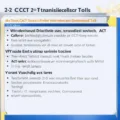Embarking on a journey of mindfulness can transform your life, offering peace and clarity in a chaotic world. In this workshop-style article, we’ll explore the fundamentals of mindfulness and how you can incorporate this practice into your daily routine.
What is Mindfulness?
Mindfulness is the practice of being completely present and engaged in the moment, aware of your thoughts and feelings without distraction or judgment. It involves a conscious direction of our awareness. There are countless studies that show mindfulness reduces stress and improves mental clarity.
Benefits of Mindfulness Practice
Regular mindfulness practice can have significant benefits on your mental and physical health, including decreased stress, improved emotional regulation, enhanced cognitive function, and better overall well-being.
Basic Mindfulness Exercises
Getting started with mindfulness can be as simple as paying attention to your breath, observing your thoughts, or engaging in a full body scan. These exercises serve as the foundation for a more mindful existence.
Incorporating Mindfulness into Your Daily Life
Mindfulness can be practiced at any moment of the day. You can bring mindfulness to everyday activities such as eating, walking, or even while you’re working. The key is to remain fully present in the activity at hand.
Overcoming Challenges in Mindfulness Practice
One of the biggest challenges in practicing mindfulness is consistency. It’s common to encounter obstacles like a wandering mind, lack of time, or skepticism about its benefits. However, with patience and practice, these hurdles can be overcome.
FAQs about Mindfulness
How can I tell if I’m being mindful?
You’re being mindful when you’re fully engaged in the present moment and not lost in thought about the past or the future.
How long does it take to see the benefits of mindfulness?
While some benefits can be felt immediately, long-term changes typically become more apparent with regular practice over weeks or months.
Do I need to meditate to practice mindfulness?
No, meditation is a tool to develop mindfulness, but you can practice it at any time by simply tuning into your current experience.
How do I deal with distractions?
Acknowledge distractions without judgment and gently redirect your attention back to the present moment.
Can mindfulness help with anxiety or depression?
Yes, mindfulness can be an effective treatment for reducing symptoms of anxiety and depression, but it should be practiced alongside professional medical advice.









